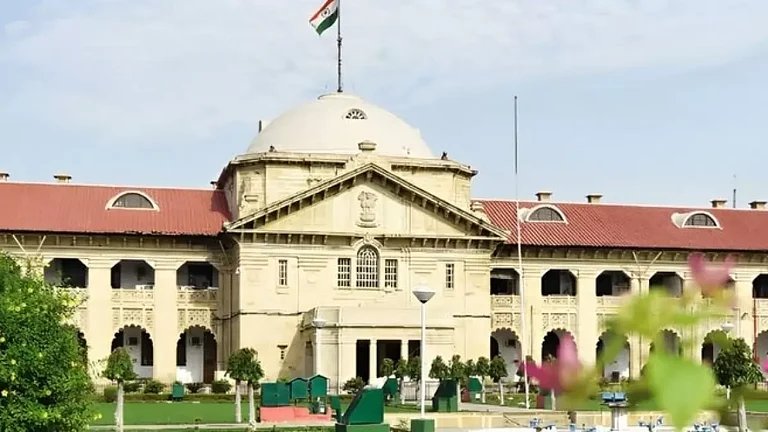The Allahabad High Court has directed all the courts in the state, dealing with maintenance proceedings, to mandatorily pass a specific order directing the parties to file their affidavits of disclosure of assets and liabilities in compliance with the directions by the Supreme Court.
Justice Mayank Kumar Jain passed the order on Tuesday on a petition filed by one Santosh Kumar Jaiswal who had challenged the order of lower court directing him to pay maintenance to his wife and daughter.
As per Jaiswal's wife, her husband was earning Rs 2 lakh per month from running a provisional store. However, Jaiswal said he was running a small store in a rented accommodation while his wife was running a beauty parlour and earning Rs 30,000 per month.
The husband had challenged the district court order under Section 12 of the Protection of Women from Domestic Violence (DV) Act, 2005 directing him to pay the maintenance of Rs 2,000 to his wife and Rs 1,000/- to his daughter.
In the high court, the husband's counsel argued, "The Court below failed to follow the Supreme Court's guidelines in the case of Rajnesh vs. Neha (supra) as they did not direct him to file his affidavit of disclosure of assets and liabilities."
It was further argued that it was the duty of the trial court to direct the applicant to file his affidavit of disclosure of assets and liabilities. In the absence of such an affidavit, the court cannot arrive at a rightful conclusion about the financial status of the applicant.
The high court, after hearing parties concerned, observed, "It seems appropriate to direct that when an application under Section 125 of CrPC or a complaint under Section 12 of DV Act or an application under Section 24 of Hindu Marriage Act is filed before the Court concerned, it should by passing a specific order on the order-sheet direct the applicant to file his/her affidavit of disclosure of assets and liabilities in accordance with the guidelines given by the Hon'ble Supreme Court."
The court set aside the maintenance order and directed the district court to decide the maintenance plea afresh after inviting an affidavit of disclosure of assets and liabilities from the parties.
It may be noted that the apex court, in Rajnesh vs. Neha case, had observed that in maintenance proceedings, since a wife tends to exaggerate her needs and the husband tends to conceal his actual income, the parties must be directed to file an "affidavit of disclosure of assets and liabilities" in such proceedings.


























